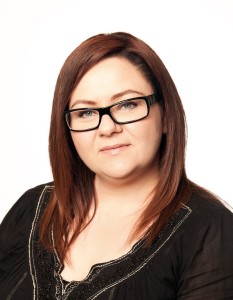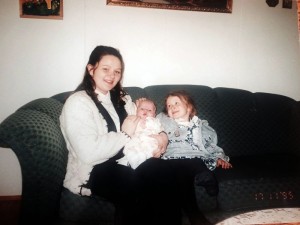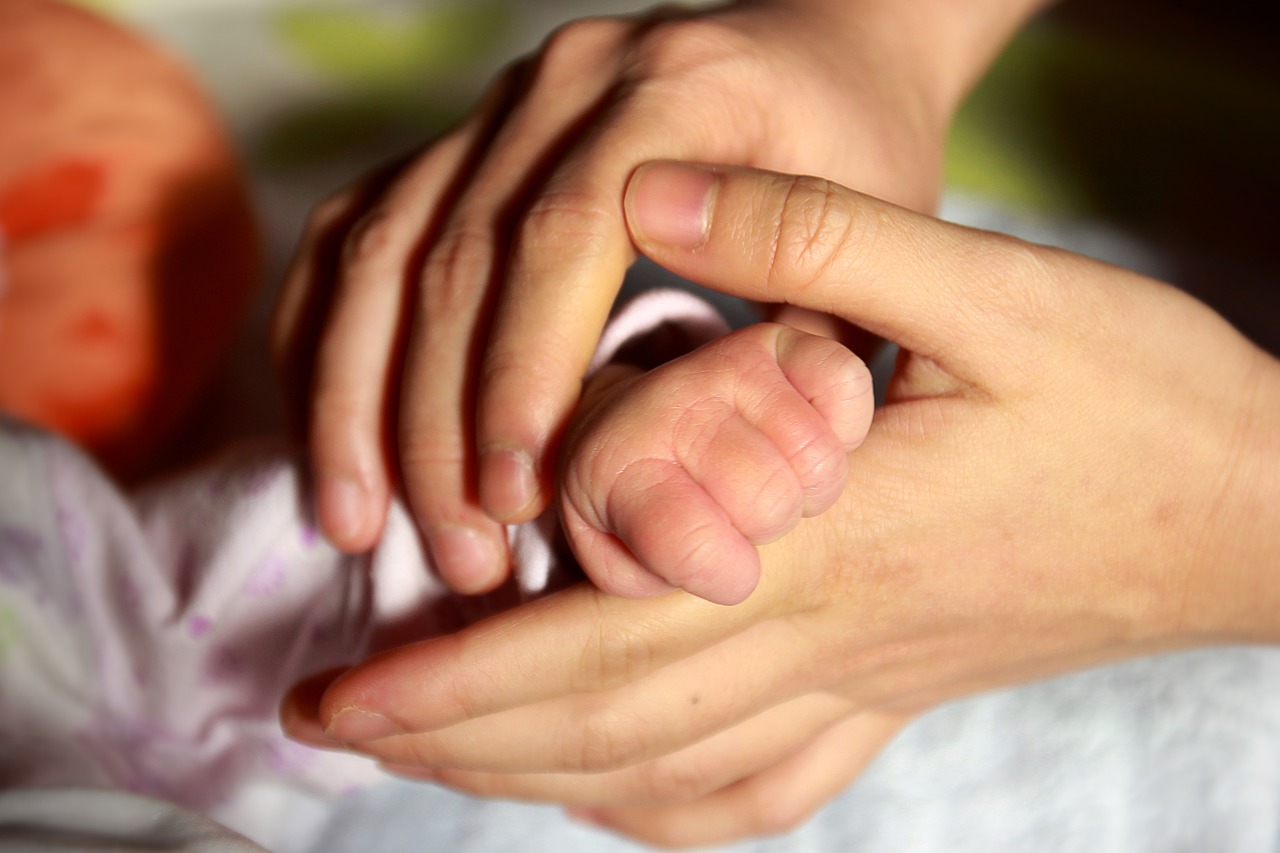A mother criticizes TV programme Kastljós for airing an interview with a woman who has lost touch with her daughter after giving her up for adoption, as an example of a surrogacy gone wrong. She herself gave a baby up for adoption twenty years ago and says that surrogacy and adoption are two very different things.
One of the hottest topics in Iceland this passing week has been surrogacy and whether or not to allow it here. And the debate on social media has become quite hot and emotional at times. What sparked the discussion this time was an interview shown on current affairs TV programme Kastljós, where a woman described how she had lost touch with her daughter, her cousin and his husband, after giving them her baby daughter to adopt.
To cut a long story short, the woman had agreed to carry a baby for them but her attempts to become pregnant by insemination with the husband’s sperm had failed. However, when she soon after fell accidentally pregnant after a one night stand, she decided to have the baby and give it to the couple, falsely stating her cousin’s husband as the biological father on the birth certificate and then allowing her cousin to adopt the baby. It turned out that sadly, her expectations were different from those of the couple’s and instead of her being the third parent, the couple cut her off when she took legal action to try to gain access rights to her daughter. Her legal attempts have failed, as have attempts of the real biological father to challenge the information on the birth certificate by having a DNA test done. So she tearfully addressed women considering becoming surrogate mothers and warned them that what it entailed was actually to lose your baby, and would they be ready to part with their child?

One of those raising her voice on social media afterwards, criticising the TV programme for airing the interview as an example of a surrogacy gone wrong is Jóhanna Ýr Jónsdóttir. Jóhanna has the experience of giving a baby up for adoption twenty years ago. At the time, she was a single mother with a three-year old daughter, uneducated with a minimum wage job. Knowing that she’d struggle to give a good life to her daughter, let alone to an additional baby, she decided to give the baby to a couple who were friends of her older sister and had been trying for a baby for years. Since then, Jóhanna has gained a Master’s degree, is married and has two other children with her husband, 11 and 12 years old. She’s still stayed in touch with her second daughter and her parents and recently, Jóhanna and her whole family were invited to her 20th birthday bash.
“When people declare that no surrogate mother could distance herself from the baby, that‘s just nonsense,” Jóhanna says. “In my case, I think I experienced the pregnancy a bit like a surrogate mother would have, despite not making the decision to give up the baby until I was 3 months pregnant. But from that point onwards, I didn‘t think of it as my baby anymore, it was theirs; I was only carrying it for them. When I felt the baby kick, it wasn‘t my joy to experience but theirs and the first thing I thought of was calling them to let them know I was feeling movements. Same as with knowing the gender, I was asked during a scan whether I wanted to know and I said yes, not because I was excited to know but I felt that the parents should have the option of knowing. So I acted as a medium and called them to ask whether they wanted to know whether they were having a boy or a girl. I was determined to get through this experience but it was hard, there‘s no denying it. But then again, this was my own baby, I can only imagine how it must be easier for woman who‘s carrying another woman‘s baby even. Frankly, that story told on the TV programme was more like an example of how NOT to do things when adopting a child. It sounds as if the ideas that they had, and the way they went about things, could never have led to a successful adoption, let alone surrogacy. In fact, this was neither surrogacy nor adoption, just a tragic story of things gone wrong.”
Jóhanna stresses that it’s necessary to set some ground rules at the beginning and plan ahead. “I only wanted to hear about my daughter’s progress when I was up for it, I didn‘t want them to call me and tell me news of her unless I was emotionally prepared for it because any other day, I wasn‘t her mother at all,” she explains and then adds: “When you decide to give your child up for adoption, you have to realise that you‘re giving up all rights to that child. I honestly believe that if my case had been a surrogacy case, it would have been easier. Yet I managed to detach myself from my own daughter. It‘s doable. And I have even offered someone to become her surrogate, if it would come to it. I gave it serious consideration and felt I was able to do it, not the least because of the experience I had already gone through; I knew I could do it.”
“This claim that it‘s torture for any woman to part with the baby she‘s carried, well it‘s not universal. I am proof of that.”
Many women have commented on how it’s impossible for any woman to part with a baby she’s carried in her womb for 9 months, whether it’s biologically hers or not. Jóhanna doesn’t agree. “This claim that it‘s torture for any woman to part with the baby she‘s carried, well it‘s not universal. I am proof of that, I was able to give away my own baby and detach myself from it, because I knew it was the best thing to do for me and both my daughters. She‘s not my child, she‘s theirs, they look after her. Sometimes people liken this to when a baby dies but I don‘t think it‘s the same at all. You see, when you give your baby up for adoption it doesn‘t feel like it‘s died, there‘s still some pain and grief but that‘s because there are things you‘re missing out on, the milestones in the child‘s life that you can‘t witness. But at the same time you‘re happy that it‘s happening and that there are parents out there experiencing it and rejoicing over it. It‘s such a dual emotion, it‘s hard to describe as it‘s a very unique and weird feeling, I can‘t emphasize that enough. But when you think about it, grief is really an emotion derived from selfishness, from losing someone you‘d rather have had staying with you for longer. It would have been so easy for me to keep her and think more of my feelings, my selfishness, my needs rather than hers. But the twenty-year-old me was extremely logical and sensible and I‘m incredible proud of “her” for doing what she did. She put her baby‘s needs above her own and the result is that both the baby girl and my eldest daughter had a better life because of that decision.”
Jóhanna’s determination even surprised the parents. “I was so prepared and was so in the mind-set that this wasn‘t my baby that when her parents came to see me just hours after giving birth the mother was acting a little shy, only looking at the baby in my arms, not touching her at all, so I just asked “Don‘t you want to hold your daughter?” She was startled by my phrasing but I simply meant it from the bottom of my heart, this was her baby and finally she could feel its presence.”
Jóhanna wants to tell her story so that people know that adoptions at least can be successful and if a woman can give up her own baby, she should be able to give up someone else’s too.

“These are two very different things, adoption and surrogacy. When you decide to give your baby up for adoption, the baby already exists, obviously it‘s already been conceived and you make a decision based on your circumstances when you find yourself in a situation that you can‘t control and adoption is one way of handling the matter. Surrogacy on the other hand is a decision that the woman takes well in advance, after thorough consideration without urgency. So even before conception, her mind-set is clear; it‘s about carrying a baby to help someone else to have a baby. I would think that the ideal surrogacy is where the surrogate doesn‘t use her own egg even, just to avoid attachment even further, and has already had at least one child, so that she knows what to expect. But I don‘t even think the two should be put in the same category, adoption and surrogacy, there‘s such a huge difference.”
And Jóhanna has strong opinion on children’s welfare. “Every child has the right to feel 100% safe and loved, it‘s the grown-ups who make a mess of things, very often because they‘re being selfish and give into their feelings rather than consider the needs of the child. I‘m all for children experiencing security and unconditional love, we as adults have to put the needs of a baby above our own needs. When you hear horror stories of adoptions gone badly it‘s usually because the adults are acting on their feelings and the children just get caught in between.”
Surrogacy is currently illegal in Iceland but a bill has been in the making for a long time, allowing altruistic surrogacy under strict conditions. “I think surrogacy is a beautiful thing and we shouldn‘t ban it just because it might possibly go wrong. We might as well ban adoption then, because unfortunately they go wrong sometimes. Anything can go wrong, we can‘t foresee everything and rule out all possible problems. But of course, people hardly ever hear all the success stories of adoptions, happy ending stories don‘t sell as well. Obviously, this bill needs some more consideration and reviewing. But for God‘s sake people, stop making claims about things you know nothing about, like whether or not it‘s possible for a mother to disconnect from the baby she‘s carrying. Mothers who have only carried and kept their own children don‘t have the scope to imagine something different. I have experience of both, all I had to do was change the equation in my mind and tell myself that this was their baby, not mine. Yes, it was hard but I could still do it.”


